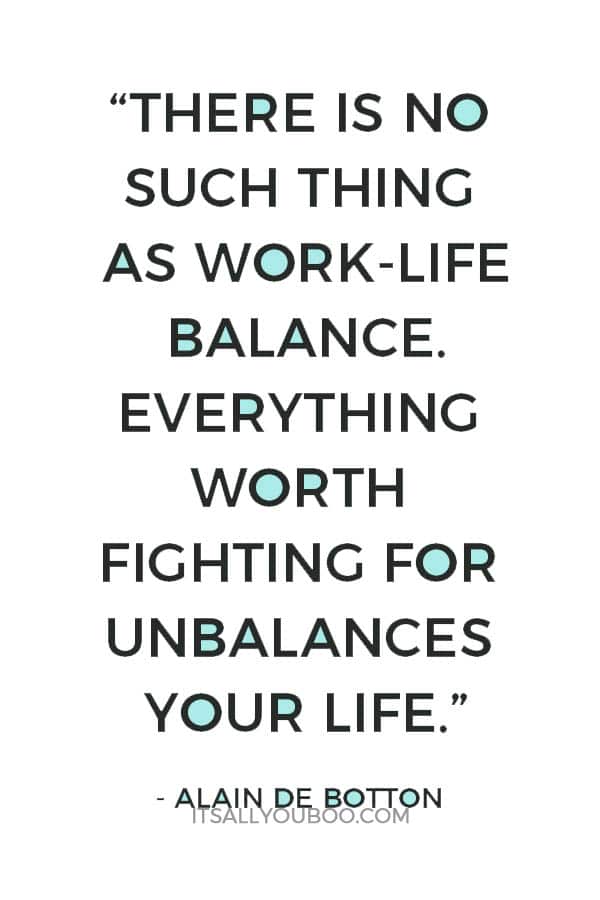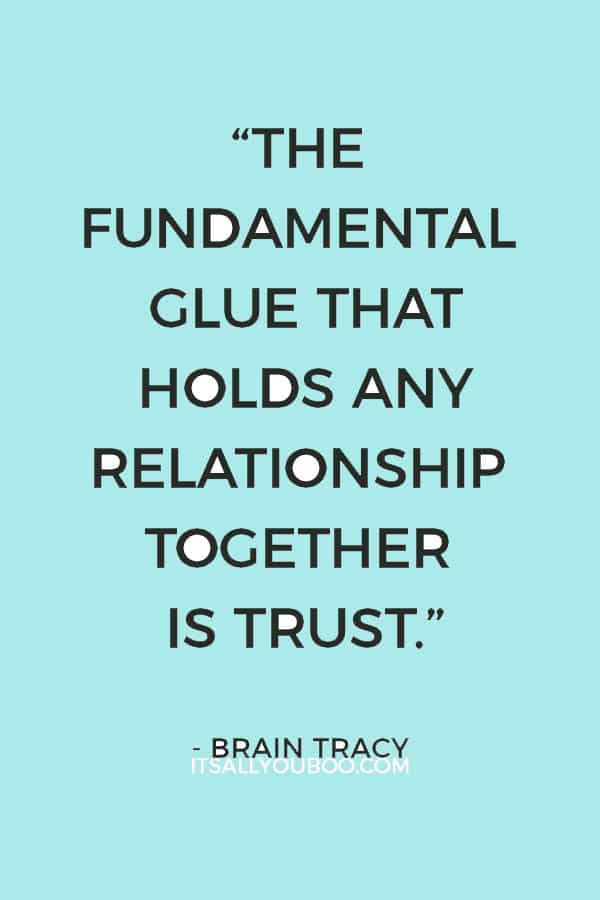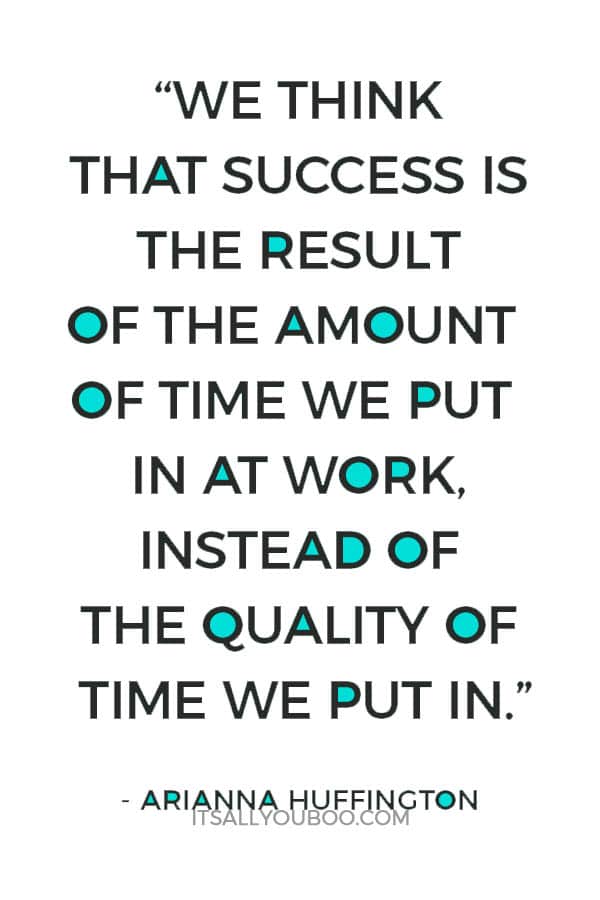How do you not let your goals ruin your relationship? What are the signs your partner isn’t happy with your ambition?
Congratulate yourself for setting goals and starting the process of realizing them!
Whether your focus is achieving goals around getting a higher paying job, going to school, transforming your body or any other goal really, the struggle is real in accomplishing goals while keeping your relationship humming along in harmony.
Whether you like or not, achieving goals while maintaining your relationship can be tough. It’s not unusual at all to receive pushback from your partner.
Sometimes the pushback comes in the form of complaining that you are not accessible, which can take a toll on your partner’s mental health as they navigate the changes in your dynamic. They’ll say you are not doing enough with them or around the house or that you are not being ‘fun’ anymore…any of this sound familiar?
By working at achieving goals you are stepping outside the comfort zone of others, and displaying behavior that is outside the established norm.
Chances are likely that at some point after you have begun working on your goals, you will begin sensing or experiencing resistance from your significant other.
This can happen even when you have talked and everything seemed like it was fine. This happens because your spouse needs time to process what you have talked about and they also need time to truly understand what ‘achieving your goals’ looks like.
Let’s talk about unlocking the secret to balancing your love life, with your goals. You can achieve your goals and maintain healthy relationships.
Your goals don’t have to ruin your relationships if you know what signs to look for. Plus, here are four practical steps you need to take to find a balance between love and ambition.
THIS POST MAY CONTAIN AFFILIATE LINKS.
IF YOU MAKE A PURCHASE FROM THESE LINKS, I MAY EARN A SMALL COMMISSION.
CLICK HERE FOR MY FULL DISCLAIMER STATEMENT.
Signs Your Partner Is Struggling with Your Goal
Are you seeing signs that your partner isn’t doing so well with your newfound passion for achieving your goals?
It’s hard to find balance and not fall apart when achieving your goals, the same is true for your relationships.
Often the resistance from your partner shows up in the form of complaining, power struggles and/or manipulation.
Complaining is natural of course and usually begins when your significant other discovers that you are really going through with this achieving goals thing and not just talking about accomplishing goals.
The truth of it is that your partner probably does not want THEIR lives to change! They may start complaining about how achieving goals has taken you away from them (or your time and attention) but it’s not that you have a goal they don’t like, it’s that they don’t want YOUR work toward achieving goals to change THEIR life!!
You spending real-time on your accomplishing goals means they have to sacrifice (i.e. not see you as much). People are usually quite invested in not having their lives change, there-by not sacrificing when perhaps they do not believe they should have to sacrifice.
Power Struggles and Manipulation
You have begun working on your goals and a few weeks in you notice that your partner is beginning to complain.
When the complaints don’t stop you and your lives do not go back to ‘pre-accomplishing goals status quo’, your partner may up the ante and begin pressing you a bit harder.
Power struggles may begin in which your significant other uses every tactic possible to come between you and your goals by distracting your attention back to themselves. In rare cases, these behaviors could stem from deeper issues, such as a personality disorder, that may require professional intervention.
Examples include:
- some ‘emergent’ need of some kind or other that require you to focus on them rather or needing you to go along on some shopping expedition
- something involving the children coming up (I am talking about trivial things here, not something that is meaningful to your child like a performance)
These are signs that your partner is desperately attempting to reinforce the known ‘status quo’.
👉🏽 RELATED POST: How to Balance Your Dreams and Your Kids
There are 4 very important steps to navigating the line of making sure your significant other feels heard and validated while laying their fears to rest. Each of these steps will unlock the secrets to not letting your goals ruin your relationships.
As a relationship coach, I can even help you maintain the balance between your goals and your relationships!
4 Steps to Balancing Your Goal with Your Relationship
Step #1: Active Listening
Feeling unheard is almost as bad as feeling invisible or unwanted. Partners are supposed to be equal contributors to a relationship.
When one partner feels that the other does not pay attention to them, dismisses them, makes decisions without them or just plain thwarts them at every turn, they may begin to wonder if their spouse truly cares for them or their needs.
Your partner needs to know that even when you are busy achieving goals you still value them and are invested in their happiness and wellbeing.
A partner that is not getting their needs for acknowledgment, value, acceptance, respect, support, safety, and appreciation met in their relationship can and DO become resentful. A partner that is resentful is going to try even harder to derail accomplishing goals!
How do you Practice Active Listening?
‘Active listening’ is a learned skill that can be developed with practice and learning the basics can be very helpful in all your relationships, especially with friends and family. If challenges persist, seeking couples therapy could provide additional tools and insights for better communication.
As the name suggests, active listening means fully concentrating on both the person and the words they are communicating rather than just passively hearing.
Active listening must be done while looking at the person with whom you are speaking (eye contact), no electronics on, no TV distracting, no web surfing… just TALKING 1:1 (blocking out distraction). Active listening is when we suspend our own thoughts and just clue in on the other person.
We are not thinking up an answer and we are trying not to judge what is being said.
Active listening is a choice that we make to do what I call ‘open heart listening’. We are non-judgmental, accepting, and patient.
- A little trick I use when I am practicing active listening is I will actually sit with my hands open and lean forward in my chair if possible (posture). These simple body postures signal to our mind that complete attention is needed and that you are open to receiving messages.
- Adopting a similar tone or stance as the other person (mirroring) is a ‘body language’ way to convey being on the same page.
Often these simple gestures allow the other person to feel at ease and to communicate more fully and honestly (positive reinforcement). Be sure to ask appropriate questions (remembering, questioning, and reflection for clarification)!
To not let your goals ruin your relationship, it’s so important to listen actively to your partner’s concerns.
Step #2: Quell Fears
It is entirely possible that your significant other is engaging in power struggling behaviors with you around you pursuing your dreams because they are afraid.
Maybe the two of you have not talked enough about the logistics of you accomplishing your goals. Maybe they are not clear on how much time your pursuits are going to take, or maybe they are feeling left out. There is no reason you cannot do the ‘active listening’ step over and over until you are both clear on all the different concerns.
After you have discussed all the ‘what, why, where’ information about how you will go about accomplishing goals, allay fears with “I hear your concerns” statements.
👉🏽 RELATED POST: How to Understand Your Fears
Here are some common concerns that I coach my clients through:
- “It sounds like you are afraid of being stuck with all the work around the house if I go back to school. I can understand why you would feel that way.”
- “I understand your concern about us paying the bills if I am not working. Yes, I am concerned about that as well, that is why I wanted to talk to you.”
- “Yes, I hear your concerns about selling the house, we have lived here for a long time.”
See, it’s not arguing; it’s not defending yourself… it’s letting them know that you HEAR their concerns and shows that you really are thinking of them too as you are considering making a big life changes and achieving goals.
How do you quell your partner’s fears?
The ‘quelling fears’ step is that of discussing ways to keep connected to family and friends while still working on your goal.
In this step, you must convey that you love your friends and family very much. You need to explain all the positives of you pursuing and achieving the goal. Some of these positives can include:
- more education could mean more money in the house for fun;
- family and friends oriented things;
- a move to a new city could mean exploring new places and meeting new people;
- a change in career might mean a higher level of self-care or a reduction in stress, etc.
Sometimes we have to reframe something ‘scary and unknown’ by talking about the highlights of moving forward with the plan.
It is important in this step to find out what is meaningful to your significant other in terms of having time with you. Maybe their needs would be well-met with a date-night or making a specific time each week for ‘special time’.
For this step, just engage in Step #1 – Active Listening while you take good notes.
To not let your goals ruin your relationship, you have to actively quell your partner’s fears.
Step #3: Set Boundaries
When you have no boundaries with yourself, your goals, and the people around you, you, in essence, have no roadmap for your behavior or the needs you have while achieving goals.
Without a roadmap, you are much more susceptible to ‘shiny object syndrome’ as I call it… which is simply the propensity to go after what is appealing at the moment instead of sticking with the plan. You and your significant other are much more prone to having arguments or disagreements too because no one understood the parameters.
I know the word ‘boundaries’ sounds insurmountable or maybe even harsh, but after years of pursuing and accomplishing goals, I also know that it is imperative for success!!
👉🏽 RELATED POST: 10 Habits that Teach You How to Be Successful
Create a Road Map for Achieving Your Goals
Let’s go back to the idea of making a ‘roadmap’ instead. You would not start out on a road trip without a map, or at least a GPS, right? Your accomplishing goals roadmap has to be really specific as to all the ‘what, why, where, how, when, and for how long’ information.
It is extremely important to build in permission to put down working toward achieving goals now and then otherwise all the work you put in may seem like too much of a sacrifice. Think of this roadmap as a way to take care of yourself and keep everything running smoothly.
Things to be discussed on the roadmap could include:
- Where will I be when I am working or studying?
- Do I have space in my home to have a dedicated workspace?
- Will I honestly be left alone or will I need to be somewhere other than home?
👉🏽 RELATED POST: 10 Easy Ways to be an Organized Working Mom
Sometimes if a person has small children or some other situation at home where locking themselves in a separate space is not a viable option then leaving the house may be the only other acceptable means for studying or working.
Set Dedicated Time for Your Goals
Another topic of hot debate will be how long you are going to work!
When choosing the length of time you need for achieving goals, the length of time should be guided by the calculations you make concerning time for the actual work and the information from Step #1 – Active Listening. Determine, what other demands need to be factored in?
This topic will need to be carefully negotiated, but PLEASE remember that YOU must stick up for yourself!! Prime manipulation alert!!
If you need 8 hours of work time to accomplish the goal, don’t second guess yourself if your partner is trying to whittle you down to a fraction of the time you need.
This is what I call ‘Dedicated Time’. I guard mine fiercely because I could not achieve goals without it!! Set your boundary and gently but firmly insist that you get however much time you have stated you need!!
👉🏽 RELATED POST: How to Manage Your Time as a Work-at-Home Mom
Stay Firm and Say No If You Have To
If your significant other insists on trying to interrupt Dedicated Time, gently refer back to reminding them of your goals. Remind them of what accomplishing goals means for them and of the agreement you made as a family. Also, that you will be available as soon as you can complete the 2 hours (or however long it is that you need) on XYZ goal.
Be sure to remind them about what THEY are getting out of YOU achieving goals.
Honestly, people are motivated by what is important to THEM more than what is important to YOU…if they cannot see why they need to sacrifice too then you won’t get buy-in or adherence to the boundaries that you set.
You CAN say no!! The world is not going to stop rotating if your partner has to take the kids somewhere alone or if you do not stop and play with little Johnnie right NOW.
To not let your goals ruin your relationship, you need to set and keep boundaries with your partner.
Step #4: Compromise
Now, I am not saying to be a complete jerk about creating the roadmap. You are an adult, these are your goals and you are the one accomplishing the goals.
YOU are able to flex occasionally! Flexing ‘occasionally’ means giving yourself permission to accommodate for really specific things. A family birthday that can’t be done any other time, yes, maybe flex… TV show you have been waiting for? DVR it. Get back on task. Really? Come on now.
So, yes, negotiation with loved ones is ok as long as you do not allow it to derail you. Creating a win-win with my wife usually looks like, “Ok, give me 2 hours to do some blogging, and then we can hit the Farmer’s Market.” I hate going to the Farmer’s Market but I love the look of delight on her face so I go.
Limit Yourself to Your Dedicated Time
One thing that I have done to circumvent my life from derailing me is that I set ‘dedicated time’.
Dedicated time to me is the time that is non-negotiable. I take this time very seriously because for me Dedicated Time is ME showing up for ME and achieving the goals I set.
I give myself time limits and when I have used up the time frame I have set I’m DONE. When it’s up, I put it away and close the computer and I’m DONE.
All the time afterward is the time I make myself use for self-care, family time, cooking, playing with my dog, or reading or sometimes I just go get a nap! However you spend the rest of your time is up to you, just be sure you put it on the roadmap!
👉🏽 RELATED POST: Why You Need to Schedule Mommy Alone Time
Create a Win-Win Solution
Listening to your significant other and acknowledging their feelings is crucial to getting them to be flexible with your needs.
Active listening helps each of you feel as though you have a part in the decision-making process. It allows for issues to be brought up and conquered without a huge fight happening and it strengthens your ability to solve issues.
Creating a roadmap makes everything very clear and supports being able to create a win-win.
Take the time with your significant other to implement these steps, yes, you may have to repeat them more than once…you may even have to try it and then come back together and make changes.
The most important thing is that you work together for the good of you both.
To not let your goals ruin your relationship, you need to compromise at every step of achieving your goals.
Get Your Free Relationships EBook
Ready to build a stronger relationship? Get your FREE 40+ page Relationships eBook, with the best relationships advice from top experts.
No sign up necessary, just click below to share this post and unlock your free eBook.
Your partner could be a great source of support if you let them in on your goals. You can’t achieve your goals all by yourself. You need accountability and encouragement to reach your goals.
Don’t let your goals ruin your relationship, keep communication open, and build partnership and you build towards your realizing your dream.
Are you worried you can't achieve your goals and be in a relationship? It's time for some love-goals balance. Click here to learn how to NOT let your goals ruin your relationship.
How will you not let your goals ruin your relationship?

More About Guest Contributor
Jaye has spent the last 15 years working as a therapist helping people face tough issues. She supports her clients, helping them to grow, rebuild self-esteem and face personal challenges. In her private practice, Jaye has had the privilege to work with people with intense trauma, family disturbance, and alienation. She is passionate about helping others strengthen the bonds of their most important relationships.
Last Updated on January 17, 2025















Joanna Stephens says
These are some wonderful tips to keep your relationships intact! As I have been focusing more and more on my blog, I think I have been spending less time with my husband. I think I need to make more of a commitment to spending some one-on-one time with him too!
Nadalie Bardo says
Hey Joanna,
I so agree with you, such an amazing post to help us work on our relationship goals. As you know, when we have a goal we’re so passionate about we can lose sight of that balance.
I’m sure he’ll appreciate the one-on-one time!
Kaylee says
This couldn’t have come a better time. My fiancé and I are both working toward goals and these are helpfuls tools we can use.
Nadalie Bardo says
Nothing like finding a post just at the right time! Glad to hear you’re working goals together, as a couple – that’s inspiring.
Amy - All about a Mummy says
We have had this in our household lately as I push my business to full time my Husband feels I have less time for him. I’m going to try your steps and see if we can find a happy medium.
Nadalie Bardo says
Hey Amy,
That must be hard on him, as your focus shifts to your business. I’m sure Jaye’s advice will be helpful in this time of transition to full-time boss!
Lauren Floyd says
This reminds me of an old Law and Order episode I saw. The husband shot the wife out of jealousy of her career, and she was in such a state of denial that she refused to believe it. It made me really thankful for my husband. He may get on my nerves, but he truly doesn’t have a jealous bone in his body. He wants me to succeed, so he can be a golfing stay-at-home dad. lol He just doesn’t want to be completely overlooked. No one does. I think sometimes women forget that men want to feel special just like they make us feel special.
Nadalie Bardo says
Hey Lauren,
OMG that’s horrible! But to be honest, not implausible in this day and age when more and more women are the breadwinners. It takes a certain type of man who loves seeing his wife shine, even if it’s outshining him.
Jen @ Jenron Designs says
Great tips for keeping those goals in site perfect time of year to refocus for next year too.
Nadalie Bardo says
Jaye did a really great job helping us all with our love work balance for sure!
Lauren says
These are wonderful tips for keeping your relationship successful when life gets in the way! With a new professional opportunity on the horizon, I needed these reminders. Thanks!
Nadalie Bardo says
Hey Lauren,
So glad these relationship tips are helpful in keeping your relationship in balance as you expand into new opportunities.
BRIE says
These are great tips even for those in a relationship
Nadalie Bardo says
100%! Here’s to having it all – love and success in our lives!
Melanie williams says
These are great tips. I have so many work goals so often find I spend a lot of time working and not working on relationships xx
Nadalie Bardo says
It’s a challenge to find a balance between love and work for sure. Hope these relationships tips are helpful in finding that balance.
Beola says
These are all wonderful tips that I am surely going to make use of, it is important to maintain balance between your relationship and your goals.
Nadalie Bardo says
Happy to hear you’ve found these relationship tips helpful! To living life and love in balance.
Leslie H says
Good stuff and a lot to unpack here. Goals and relationships have to coexist for either to succeed. A partner who agrees and understands what is needed for goals is key, otherwise resentment and “problems’ can arise.
Nadalie Bardo says
Hey Leslie,
Yes, you’re so right. We can’t dive deeply into one area and let the other suffer. It’s really about finding someone who does get it as you say.
Tomiko says
First let me say I love your blog! It’s amazing! I don’t think i have relationship goals at this point in my marriage. My husband and I just do what works for us.. sometimes we fail and sometimes we succeed..
Nadalie Bardo says
Hey Tomiko,
Thanks so much for the blog love – much appreciated!
The couple that “slays” together, stays together. Love that you’re both in it together.
kita says
These are great tips. I think in relationships people change all the time and it’s hard to say no often and stay firm when you want to find a middle ground and can’t.
Nadalie Bardo says
It’s so hard to say no! Personally, I feel guilty a lot when I turn down opportunities to hang with friends or family – but when I can say yes, it’s the best.
All about finding that balance between love and work!
Fashion and Style Police says
I am loving the tips here. I agree with every one of them. Good to communicate and really hear each other when chasing individual goals.
Nadalie Bardo says
Totally – good communication is great for any relationship – romantic or otherwise.
Nkem says
Great points you’ve made here! Some of the key ones I gleaned are quality > quantity, and nothing is going to be easy in a relationship – it’s going to take work, but the work should be worth it. Nice post!
Nadalie Bardo says
Hey Nkem, glad you’re loving the relationship advice from Jaye. She has so many great tips. You’re so right, it’s not easy but with work, so worth it!
Judaea says
I love these tips I will keep them in mind
Nadalie Bardo says
Happy to hear it, Judaea!
Judaea says
These are great tips hopefully people will listen and learn from this great article
Nadalie Bardo says
Agreed – I know I did!
ShaBree Henry says
Setting an attainable goal is the hardest thing. When you’re in a relationship I think active listening is key. Great tips. Thank you for sharing.
Nadalie Bardo says
100% agree with you! We have to listen and really listen. Jaye’s step-by-step tips for active listening were so great.
Terri says
I absolutely love this post. Getting my husband on board to start a debt free journey was definitely tough. However, much like your suggestion here we schedule designated time to discuss the goals and sorta made it like a date night. It actually helped make it more fun and not some tedious board meeting discussing progress.
Nadalie Bardo says
Hey Terri,
Thanks so much for sharing your own experience with goal setting with your husband. It’s so important to be on the same page and to both be invested in achieving this goal.
Date night is definitely a better way to make goal setting more relaxed for sure. Hope it works for you both!
Shana says
These are some very timely tips on keeping focus of your goals. Letting your partner know that even though attaining your goals are in important, so are they, are signs communication.
Nadalie Bardo says
Yes – that’s it exactly! We can even though it feels hard, have more than one thing in our life that’s important, that’s the spirit of the love and goals/work balance.
Tanay says
These are great tips. I love that quote everything worth fighting for unbalances your life.
Nadalie Bardo says
Isn’t it such a powerful quote? Love is worth fighting for!